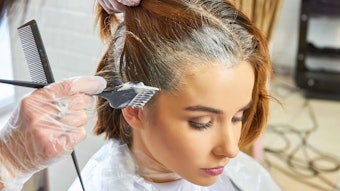
On May 17, 2023, the UK-registered Advertising Standards Agency (ASA), Ltd., deemed its ruling would stand against Wild Cosmetics, Ltd., for a misleading ad that appeared on Dec. 2, 2022, on YouTube and for information posted on the company's website.
See related: John Paul Mitchell Hit with Suit Alleging False 'No Animal Testing' Claim
According to the ASA report, the ad featured a model applying and then throwing aside spray-on deodorants while appearing itchy and uncomfortable. Wild's packaging then appeared on the screen with a voice-over explaining that pore-clogging antiperspirants prevent the body from expelling "sweat and toxins" it would otherwise release, causing itching, rashes and malodor. The caption stated, "no aluminiums or other harsh chemicals."
Furthermore, the company website featured information on aluminium versus aluminium salts, stating many mainstream antiperspirants contain a synthetic group of aluminium salts that again, block pores to stop sweating. It continues, "By preventing perspiration, there is less opportunity for the growth of odor-causing bacteria which thrive when sweat lingers on the skin. It's effective, but perhaps not the safest option..."
The website also states there are studies linking aluminium salts to undesirable side effects on health based on the salts' absorption into the body, "upsetting fine-tuned hormonal balances, for example within the endocrine system." It goes on to say that further research is needed to generate more concrete evidence and accessible explanations, "however we do not wish to use them in our deodorant, as the initial findings and research currently available suggest it may not be worth the risk! ..."
See archived: Keeping Cosmetics in Check; APs/Deos — Truly Essential or Marketing Hype?
The complainant challenged whether the following claims in the ad were misleading: a) that most deodorants prevented the body from expelling harmful toxins, worsened body odor and were linked to health problems like rashes or itchiness; and b) that antiperspirants containing aluminium salts were potentially harmful to users, including by interfering with hormone balances in the endocrine system.
As noted, the ASA upheld its ruling and as a result, the ad must not appear again in the original form. The agency communicated that future ads must not feature claims that competing deodorants or antiperspirants, through the action of inhibiting perspiration or containing synthetic ingredients including aluminium salts, were linked to health problems such as hormonal imbalances, itchiness, rashes or body odor.










